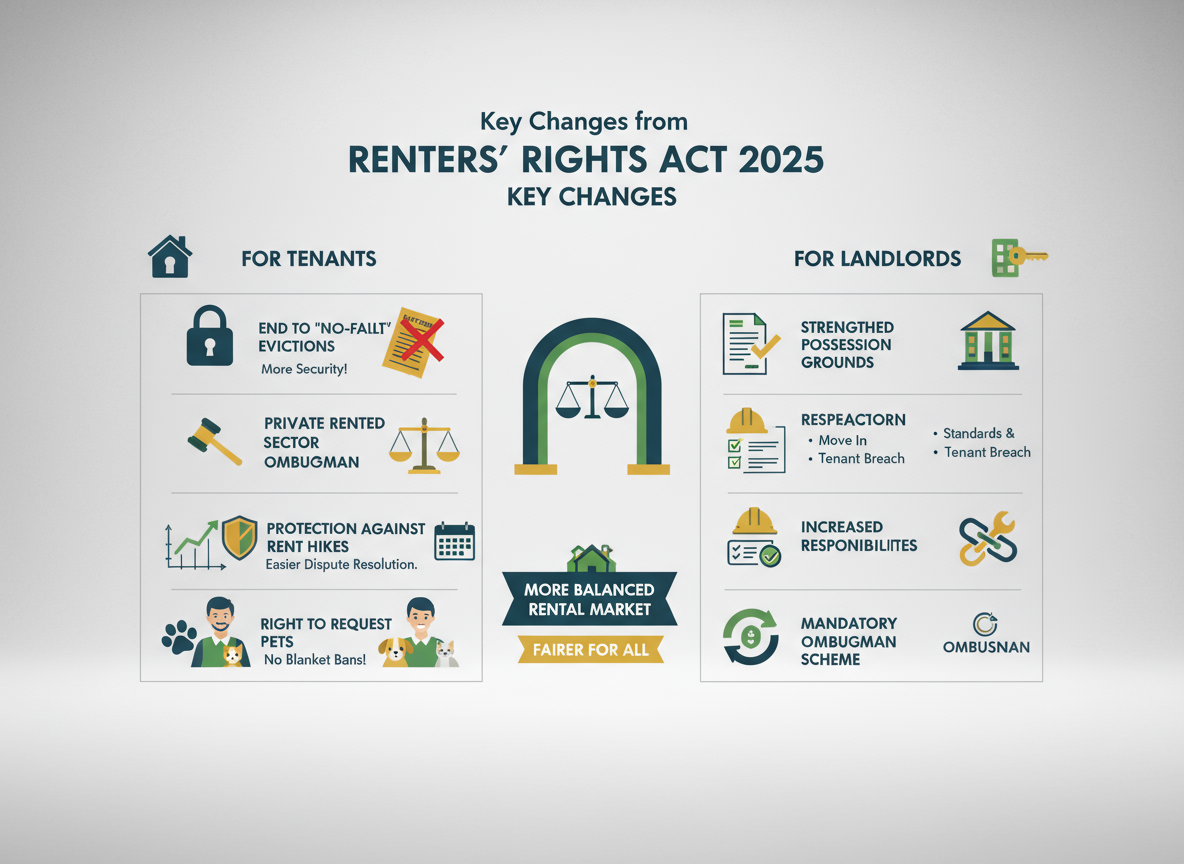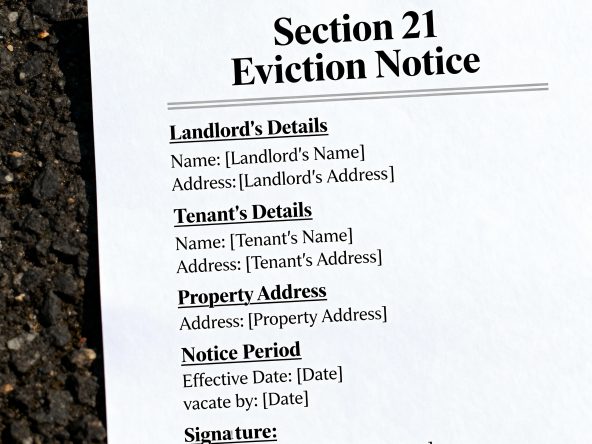The rental market is an ever-evolving landscape, with laws and regulations frequently being updated to better protect tenants and landlords alike. In 2025, the Renters’ Rights Act introduces several key changes that will significantly impact the way tenancies are conducted in the UK. Let’s take a closer look at some of the major amendments brought about by this new legislation:
Abolition of Section 21 evictions
Shift to Periodic Tenancies
Limits on Rent Increases
Renting with Pets
New Private Rented Sector Landlord Ombudsman
Other Changes
Conclusion
In conclusion, the Renters’ Rights Act 2025 brings about significant changes that seek to create a fairer and more transparent rental market for both tenants and landlords. From the abolition of Section 21 evictions to the introduction of a new ombudsman service, these reforms aim to address some of the key issues that have long plagued the rental sector. It is crucial for all parties involved to familiarize themselves with these changes to ensure compliance with the law and to protect their rights and interests.renters-rights-act-2025
As an expert in rental laws and regulations, I am here to guide you through the key changes introduced by the Renters’ Rights Act 2025. Let’s dive into the details and implications of these significant amendments for both tenants and landlords in the UK.
Abolition of Section 21 evictions
One of the most notable changes brought about by the Renters’ Rights Act 2025 is the abolition of Section 21 evictions. This means that landlords will no longer be able to evict tenants without a specific reason. Instead, they will have to rely on an expanded list of “possession grounds” under Section 8 to terminate a tenancy. This change aims to provide greater security for tenants and prevent unfair or arbitrary evictions.
What does this mean for tenants and landlords?
For tenants, this change means that they can now feel more secure in their homes, knowing that they cannot be evicted without a valid reason. On the other hand, landlords will need to ensure that they have legitimate grounds for seeking possession of their property and follow the appropriate legal procedures.
Shift to Periodic Tenancies
Another key change introduced by the Renters’ Rights Act 2025 is the shift to periodic tenancies. This means that all tenancies will become periodic (rolling) rather than fixed-term. As a result, tenants will have the flexibility to challenge poor practice or unfair rent increases without the risk of being forced out at the end of a fixed term.
How does this impact tenants and landlords?
This shift gives tenants more freedom and control over their living arrangements, allowing them to address any issues that may arise during their tenancy. Landlords, on the other hand, will need to be mindful of their responsibilities and obligations towards tenants, even in a periodic tenancy agreement.
Limits on Rent Increases
The Renters’ Rights Act 2025 also imposes limits on rent increases, with landlords only being able to raise rent once per year using a Section 13 notice. Additionally, there are new protections in place to prevent “backdoor” evictions through excessively high rent hikes.
What are the implications of this change?
This change provides tenants with greater protection against unaffordable rent increases and ensures that landlords cannot exploit their position to force tenants out through exorbitant rent hikes. It promotes fair and reasonable practices in the rental market.
Renting with Pets
Under the Renters’ Rights Act 2025, tenants will now have the right to request a pet in their home, and landlords can only refuse “unreasonably.” Landlords may require pet insurance to cover potential damage caused by pets.
What does this mean for pet owners and landlords?
This change benefits pet owners who can now enjoy the companionship of their furry friends without facing discrimination from landlords. Landlords, however, may need to consider the potential risks and liabilities associated with allowing pets on their property.
New Private Rented Sector Landlord Ombudsman
In an effort to improve dispute resolution in the rental sector, landlords are now required to join a new ombudsman service. This service aims to provide a quicker and cheaper alternative to court proceedings for resolving disputes between tenants and landlords.
How does the ombudsman service benefit tenants and landlords?
The new ombudsman service offers tenants and landlords a more accessible and efficient way of resolving disputes, without the need for expensive legal proceedings. It promotes transparency and accountability in the rental market.
Other Changes
In addition to the key amendments mentioned above, the Renters’ Rights Act 2025 also includes a ban on rental bidding wars and the introduction of a new “Property Portal” for landlords to register on. These changes aim to streamline processes and create a more efficient and fair rental market.
In summary, the Renters’ Rights Act 2025 represents a significant step towards creating a more balanced and equitable rental market in the UK. By introducing key changes such as the abolition of Section 21 evictions, shifts to periodic tenancies, limits on rent increases, and new protections for tenants with pets, this legislation seeks to address some of the longstanding issues in the rental sector. It is essential for all parties involved to stay informed about these changes and ensure compliance with the law to protect their rights and interests in the rental market.




